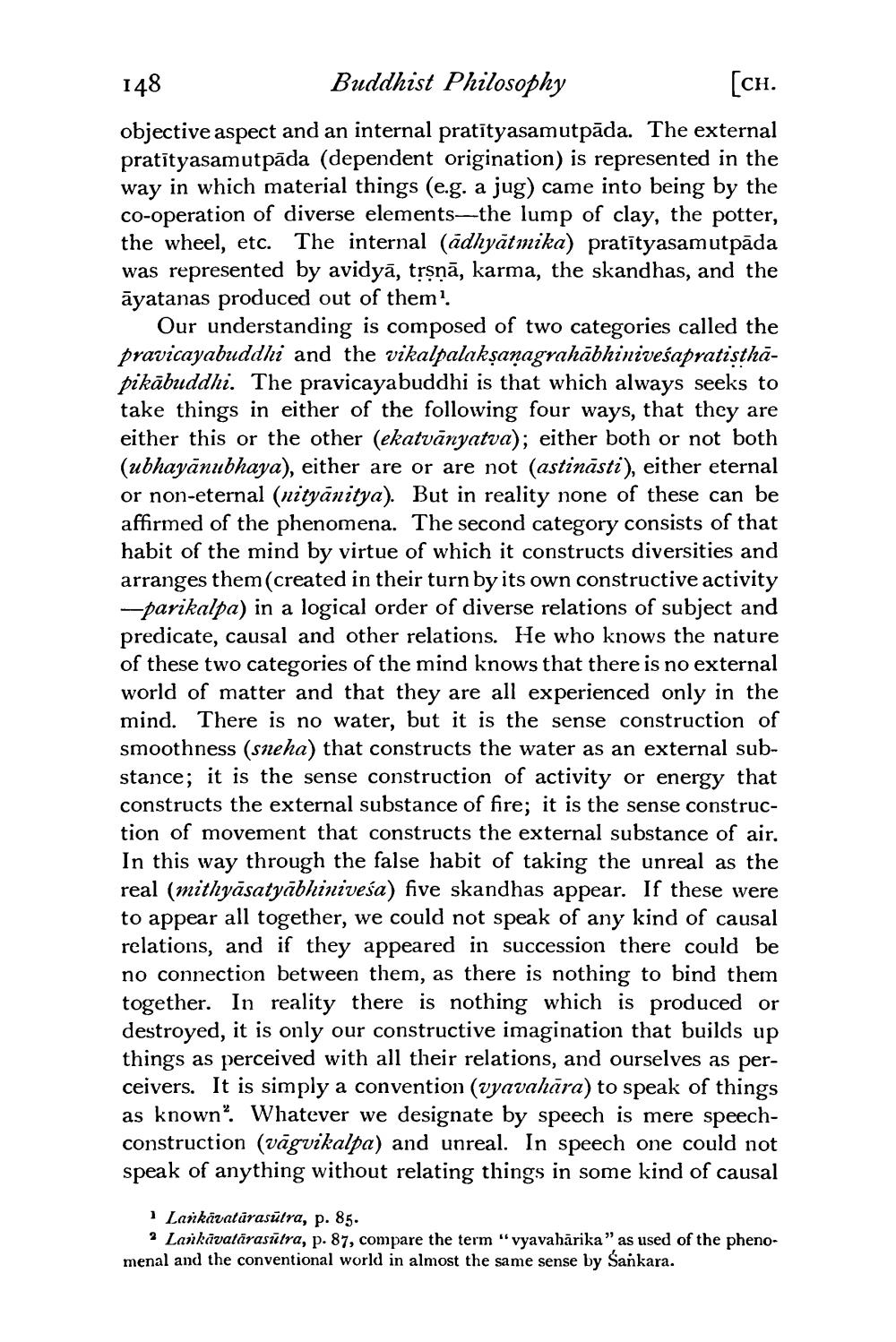________________
148 Buddhist Philosophy
[CH. objective aspect and an internal pratītyasamutpāda. The external pratītyasamutpāda (dependent origination) is represented in the way in which material things (e.g. a jug) came into being by the co-operation of diverse elements—the lump of clay, the potter, the wheel, etc. The internal (adhyātunika) pratītyasamutpāda was represented by avidyā, trsņā, karma, the skandhas, and the āyatanas produced out of them?
Our understanding is composed of two categories called the pravicayabuddhi and the vikalpalaksanagrahābhiniveśapratisthāpikābuddhi. The pravicayabuddhi is that which always seeks to take things in either of the following four ways, that they are either this or the other (ekatvānyatva); either both or not both (ubhayānubhaya), either are or are not (astināsti), either eternal or non-eternal (nityānitya). But in reality none of these can be affirmed of the phenomena. The second category consists of that habit of the mind by virtue of which it constructs diversities and arranges them(created in their turn by its own constructive activi
parikalpa) in a logical order of diverse relations of subject and predicate, causal and other relations. He who knows the nature of these two categories of the mind knows that there is no external world of matter and that they are all experienced only in the mind. There is no water, but it is the sense construction of smoothness sneha) that constructs the water as an external substance; it is the sense construction of activity or energy that constructs the external substance of fire; it is the sense construction of movement that constructs the external substance of air. In this way through the false habit of taking the unreal as the real (mithyāsatyābhiniveśa) five skandhas appear. If these were to appear all together, we could not speak of any kind of causal relations, and if they appeared in succession there could be no connection between them, as there is nothing to bind them together. In reality there is nothing which is produced or destroyed, it is only our constructive imagination that builds up things as perceived with all their relations, and ourselves as perceivers. It is simply a convention (vyavahāra) to speak of things as known". Whatever we designate by speech is mere speechconstruction (vāgvikalpa) and unreal. In speech one could not speak of anything without relating things in some kind of causal
i Lankāvatūrasutra, p. 85.
? Larkavatārasūtra, p. 87, compare the term "vyavahārika" as used of the phenomenal and the conventional world in almost the same sense by Sankara.




